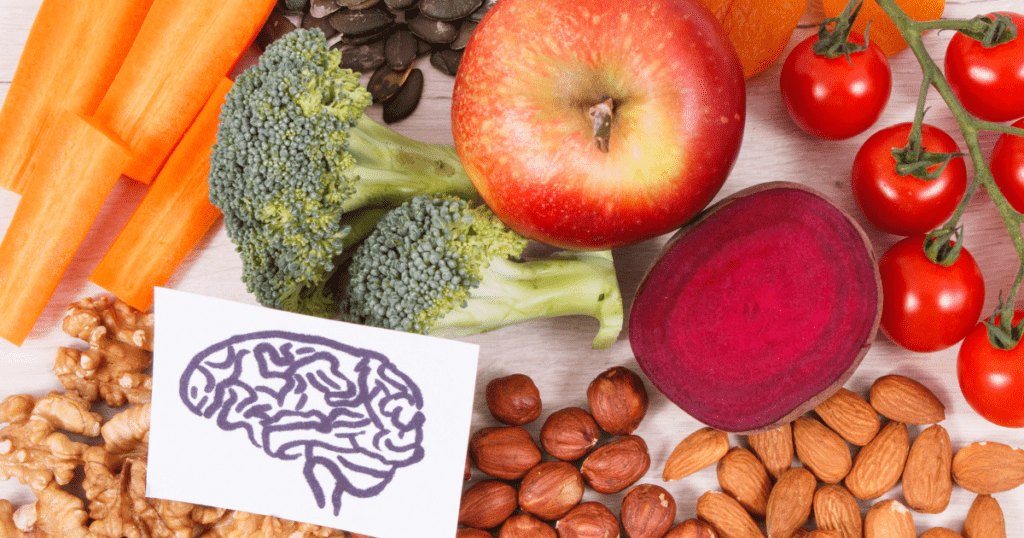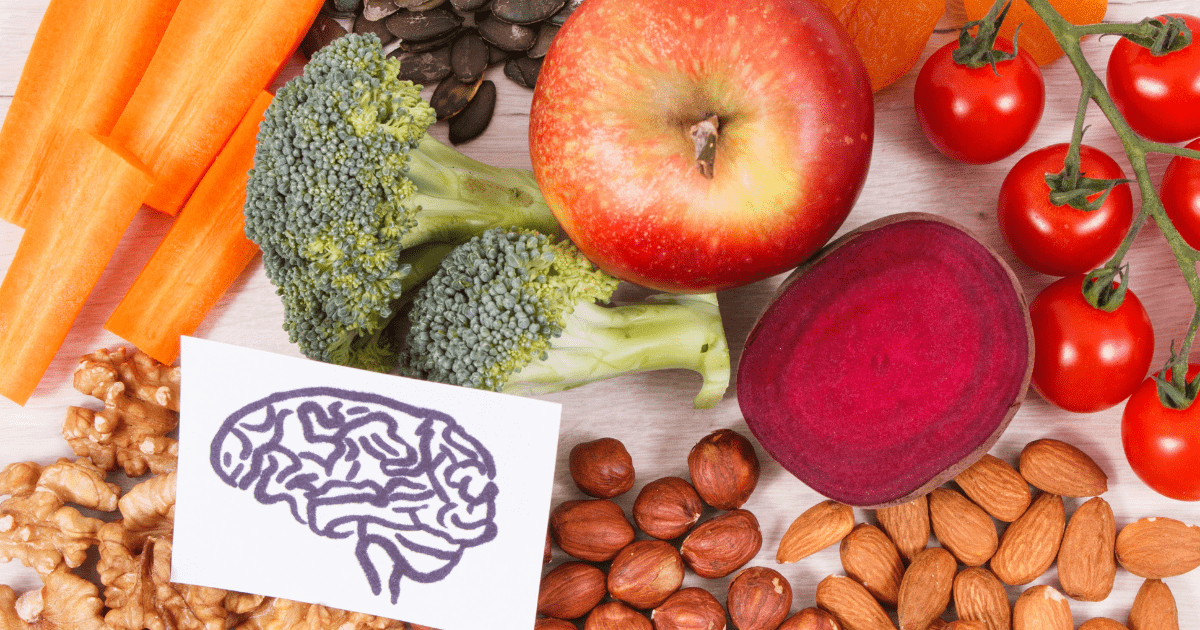Food Choices for the Health of Brain
Nutrition Strategies for the Health of Brain: Enhancing Emotional Well-Being Through Diet and Lifestyle Choices
The food for the brain, gut and the development of certain diseases can be influenced by the specific types of foods we consume. Ultra-processed foods consist of ingredients derived from food sources, like sugar and starch, components included from food constituents such as hydrogenated fats, or substances created in a scientific setting like flavor enhancers and food colorings. Food manufacturers frequently use certain ingredients or additives to enhance the flavor of fast foods and other processed foods, making them more appealing to consumers. These types of foods are commonly found in the standard Western diet. Some examples of processed food include canned goods, sugar-coated dried fruits, and salted meat products. Ultra-processed foods encompass various items such as soda pops, packaged snacks that are either savory or sweet, packaged breads, buns, pastries, fish or chicken nuggets, as well as instant noodle soups.

Researchers suggest that it is better to focus on improving our diet before attempting gut-modifying therapies like probiotics and prebiotics to enhance our well-being. They recommend that people stay away from junk foods and fast foods, instead concentrate on whole foods.
The connection between intuition and emotional state
When we think about the brain and gut connection, it is important to keep in mind that the gut has numerous serotonin receptors. We focus on nutritional psychiatry to assist patients in comprehending the impact of their diet and gut health on their emotional well-being. The majority of side effects associated with an antidepressant like a selective serotonin reuptake inhibitor (SSRI) are gut-related, and a lot of people may experience temporary nausea, diarrhea, or gastrointestinal issues when prescribed. The vagus nerve can serve as a pathway for both anatomical and physiological communication between the brain and the gut. The link between diet and ailments such as depression and anxiety can be better understood by way of the gut-brain axis.
Illness can arise when there is an imbalance between beneficial and harmful bacteria. Examples of this type of disease include: Inflammatory bowel disease (IBD), asthma, obesity, metabolic syndrome, diabetes, and cognitive and mood issues are conditions that can be characterized by chronic inflammation, respiratory difficulties, excessive weight, disruptions in metabolic functions, high blood sugar levels, and impairments in cognitive abilities and emotional well-being. IBD is the result of a malfunctioning immune system that fails to effectively interact with bacteria and the lining of the gut.
The relationship between diet and depression
According to a study carried out in 2018, it has been indicated that following a well-balanced and nutritious diet, like the Mediterranean diet, along with refraining from consuming foods that cause inflammation could potentially offer protection against depression. A different research paper presents an Antidepressant Food Scale that enumerates 12 nutrients associated with preventing and treating depression. Spinach, strawberries, watercress, salmon, mussels, oysters, cauliflower, romaine lettuce, and watercress are some of the foods that are good for the health of brain.
Improving one’s diet can benefit the treatment process, but it’s important to note that it is just one aspect of brain health and overall wellness. However, you cannot rely solely on physical activity to overcome an unhealthy eating routine. Also, you cannot solely rely on consuming food to alleviate feelings of anxiety or depression.
When discussing mood issues, we are encompassing various levels of depression, ranging from moderate to severe. It is important to avoid relying solely on food as a means to alleviate our mood. To put it differently, it’s crucial to understand that food alone cannot significantly affect severe depression or suicidal thoughts. If you find yourself experiencing such harmful thoughts, it is imperative to promptly seek professional guidance and appropriate treatment.
Recommendations for promoting a healthier digestive system and enhancing emotional well-being
- Consume whole, unprocessed foods while steering clear of packaged and processed foods that have too much food additives as well as preservatives, as these substances can negatively impact the beneficial microbes in the gut.
- Think about incorporating a larger amount of fresh fruits and veggies into your diet rather than relying on fruit or vegetable juice as a substitute. Additionally, choosing frozen fruits that do not contain added sugars or additives can be a healthy choice.
- Make sure to consume an adequate amount of fiber and incorporate whole grains and legumes into your eating plan.
- Incorporate foods with high levels of probiotics, such as unsweetened plain yogurt.
- To reduce the amount of sugar you consume during breakfast, you can enhance plain yogurt with cinnamon and pair it with berries, oatmeal, or chia pudding.
- A healthy gut can be maintained by consuming fermented foods like unsweetened kefir (kefir is good for you), kimchi or sauerkraut.
- Aim to maintain a well rounded diet by incorporating seafood and lean poultry into your meals throughout the week, while reducing your consumption of red meat.
- Make sure to incorporate a diverse range of brightly colored fresh fruits and veggies into your everyday eating habits.
Food for the Brain
Studies indicate that the most effective foods for the brain health are also beneficial for safeguarding your heart and blood vessels. These consist of the following:
Vegetables that are green and leafy. Greens like kale, broccoli, collards, and spinach contain nutrients that promote brain health, which includes vitamin K, lutein, folate and beta carotene. Studies indicate that these food items derived from plants may potentially aid in slowing down the deterioration of cognitive function.
Fish that is fatty. and stay away from foods high in fat, salt, and sugar. It is advisable to consume fish like salmon and cod, which have low mercury levels, at least two to three times per week. You can get omega-3 from flaxseeds, walnuts, and avocados, or take a supplement as an alternative food for the brain if you don’t like fish.
Small fruits. Research has also shown that flavonoids, found in berries, can improve memory. A study conducted at Brigham and Women’s Hospital revealed that women who ate strawberries and blueberries at least twice a week experienced a delay in memory decline of more or less two and a half years.
Beverages like tea and coffee. Caffeinated beverages such as tea or coffee can actually help your concentration to a higher level. A 2014 study in The Journal of Nutrition found that those who consumed more caffeine performed much better on mental function tests. Other studies suggest caffeine may help firm up new memories. Researchers from Johns Hopkins University instructed individuals to examine a sequence of pictures after consuming either a fake treatment or a 200 milligram caffeine pill. The next day, a greater number of individuals from the caffeine group were successful in accurately recognizing the pictures.
Walnuts is rich food for the brain. Nuts provide protein and beneficial fats, and a specific variety of nut has the potential to improve memory. In 2015, UCLA carried out research which revealed a link between consuming more walnuts and achieving better scores in cognitive tests. Walnuts contain alpha-linolenic acid (ALA), which is a good source of omega 3 fatty acids. The researchers discovered that individuals who consumed foods high in ALA experienced reduced blood pressure and improved arterial health. It is advantageous for both the cardiovascular system as well as the cognitive functions.
Sources:
Naidoo, U. (2018). Gut feelings: How food affects your mood. Harvard Health Publishing. (https://www.health.harvard.edu/blog/gut-feelings-how-food-affects-your-mood-2018120715548). Accessed October 29, 2023
Harvard Health Publishing. (2021). Foods linked to better brainpower. (https://www.health.harvard.edu/healthbeat/foods-linked-to-better-brainpower). Accessed October 25, 2023
Gehlinch, H.K et al.(2019). Fruit and vegetable consumption is associated with improved mental and cognitive health in older adults from non-Western developing countries. National Library of Medicine. (https://pubmed.ncbi.nlm.nih.gov/30295221/). Accessed October 27, 2023
Category
- Health Issues (72)
- Healthy Diet (48)
- Herbs for Health (11)
- Mental Health (33)
- Skin Care (20)

